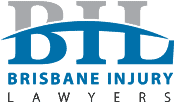Yes, under Queensland law you may bring a claim any time within the earlier period of 9 months after sustaining injury, or one month of consulting a lawyer. You may bring a claim outside of this period (up to no later than 3 years from sustaining the injury) if you can justify a ‘reasonable explanation for the delay’. In addition, be mindful of your reporting obligations to the Queensland Police if you are involved in a motor vehicle accident. If you do not report the accident within 1 year of the date of the accident you may be fined if you try to bring a claim outside of this time and at that point report the matter to the Queensland Police (a requirement of bringing such a claim).
This depends on certain variables. Eg, when the accident occurred and the extent of your injuries. Injuries need to reach a point of stabilisation before it can be assessed by an independent medico-legal specialist. Also relevant is whether liability is one that requires extensive investigation, and if medico-legal specialists refer you for further assessment from another specialist. We will however endeavour to bring about a resolution to your claim at the earliest available opportunity for the right amount of compensation.
You still have rights to begin a claim against the Nominal Defendant. In addition once our investigations have commenced we will hopefully ascertain the correct entity against which you may be entitled to bring a claim.
We cannot organise or pay for rehabilitation. However, once we lodge a claim against the CTP insurer on your behalf, and you comply with various aspects in the initial phase of the claim, then we can request that the insurer fund your rehabilitation. The rest of the rehabilitation funding process is then left with the insurer to approve or reject the request. Any rehabilitation paid for by the CTP insurer will be taken into account when discussing possible settlement options at a later time.
You have 3 years from the date of your injury to lodge a common law claim.
The Workers Compensation scheme in Queensland essentially allows for two category of claims.
Entitlement to lodge a Statutory claim is assessed under what is commonly referred to as a no fault system.
Generally speaking, there are two criteria to which a worker must satisfy to lodge a claim they are:
1. Are you a worker?
2. Is work a significant contributing factor?
When lodging a Common Law Claim, to be successful the worker must establish that his or her employer was negligent.
To prove negligence, the worker must show that the employer had:
1. A duty of care
2. Breached its duty of care
3. That it’s breach of duty of care caused the injury
4. And that the type of injury sustained was reasonably foreseeable.
During a WorkCover Statutory Claim, WorkCover is obliged to pay your lost wages and your treatment. If you are not satisfied WorkCover are doing either of these correctly, there are appeal rights which a worker can utilize.
No, our firm looks after payment of obtaining all relevant medical records, obtaining specialist reports and opinions and any other expenses. This charges are listed against your file and are called outlays. When your matter settles, the cost of these outlays are paid back to the firm. Out of your settlement monies, our firm professional fees are also paid.
When your matter settles, statutory payments such as Medicare, WorkCover and Centrelink must be deducted first. Outlays are then deducted such as the costs of medical records, obtaining specialist opinion and barrister fees. From the amount left over, the most we can take is 50% however this ‘50/50 rule’ only applies in circumstances where our fees would be in excess of the compensation you are entitled to receive after deduction of statutory payments and outlays. The rule does not apply where our fees are less than which you are expected to receive in the above scenario. In that case we will simply deduct our fees and the larger residual amount will be paid directly to you. This 50% rule is governed by legislation and it ensures fairness on clients who have matters that settle for very modest amounts. Upon first consultation with you, our client agreement will be explained which lists all relevant aspects relating to outlays and professional fees.
Not necessarily. We are bound to follow a set of rules which facilitate the resolution of matters before it reaches court. When all relevant information is gathered, and we are in a position to conduct settlement negotiations, then the usual course of action is to hold a settlement conference with the injured person, your solicitor, barrister, and the insurer all present.
